As the first snow of the season fell on St. Petersburg, Russia, Svetlana, 17, sat with two new acquaintances on a bench. They talked, giggled, and waited. Three hours later, they would continue their conversation in the ladies room, over cigarettes, as they put on their make-up, ready to return home. The only difference between those two conversations is that now, in between puffs, they can speak about being free from their pregnancies.
Abortion still is the main means of contraception in Russia, due mainly to a history of poor sex education during the Soviet era. Then, health care existed “in words, not in practice,” according to the director of a St. Petersburg clinic, who added that the large number of abortions is “a social problem, not a moral one.” The Russian church is silent on the subject.
Abortion is a tradition passed down from mother to daughter. The average Russian woman has four abortions in her life. Doctors in this St. Petersburg clinic have seen women who have had more than 20 of the operations. It is not uncommon to see the same girl, year after year. According to Russian law, girls can have an abortion without parental consent after they reach 15. Abortions can be performed up to the 12th week of pregnancy here, but other clinics perform them up to the sixth month.
This clinic performs about 2,000 abortions a year, mostly for girls 12 to 18 years old. It also provides free health care for teens. Staff members try to change the tide of misinformation about sex by teaching teens about contraception and distributing quality condoms, which had been unavailable or too expensive. The Russian government provides very little social help for
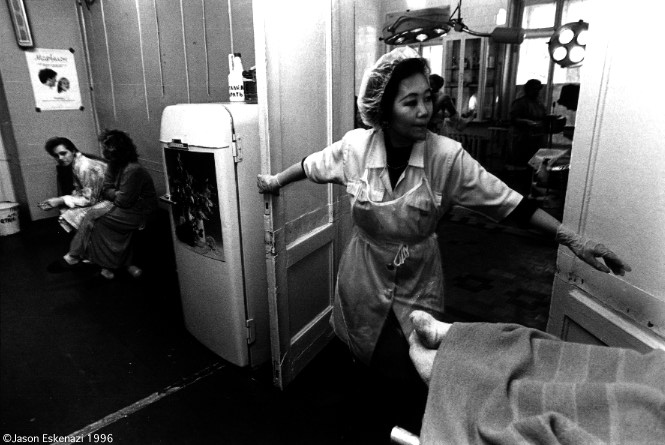

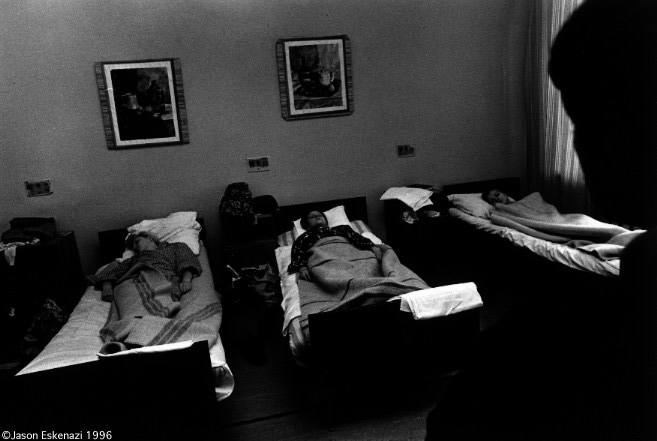
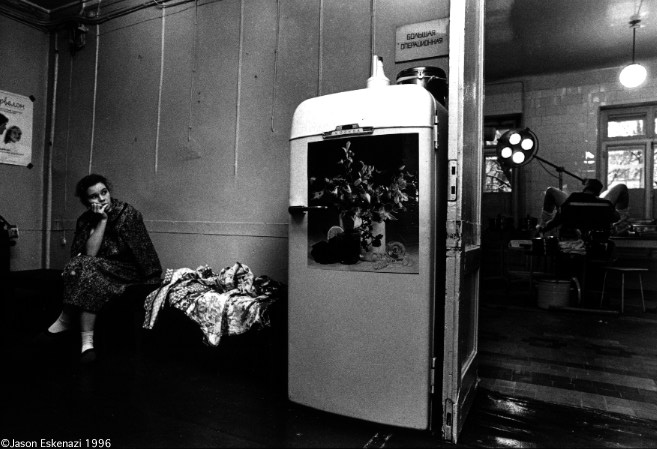
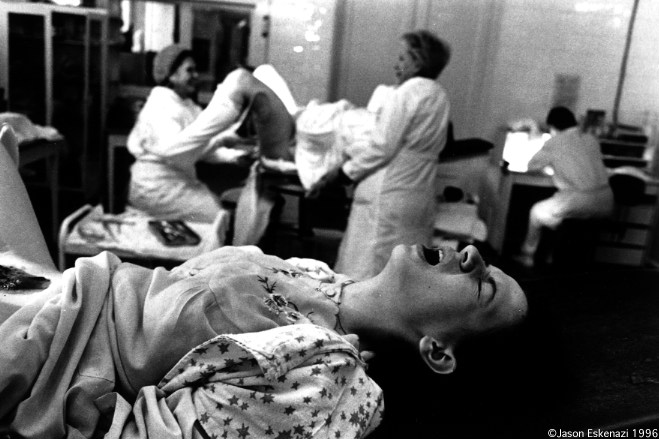
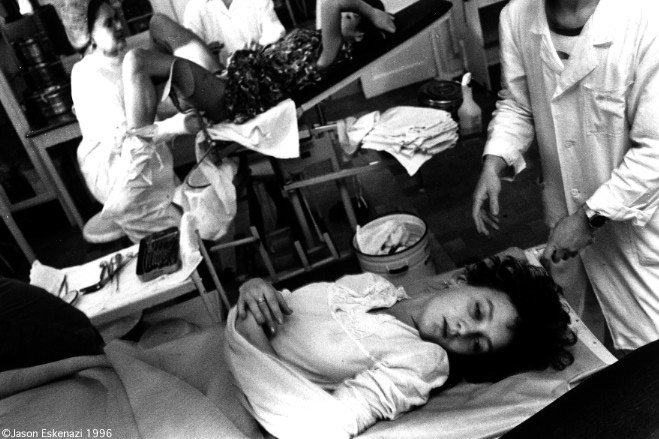
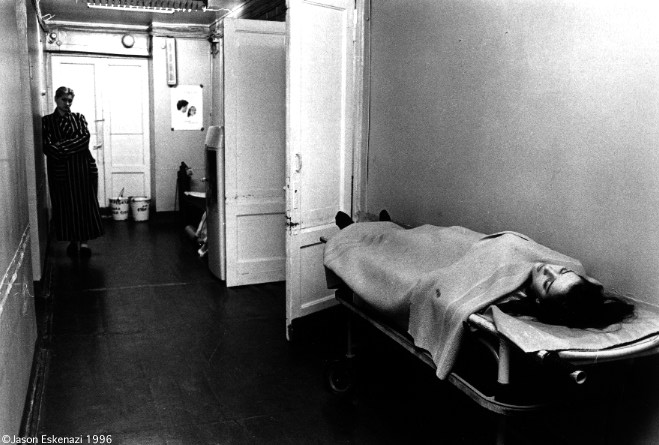
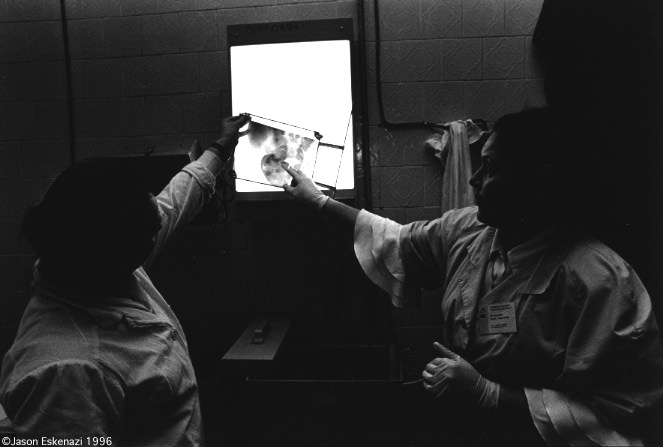
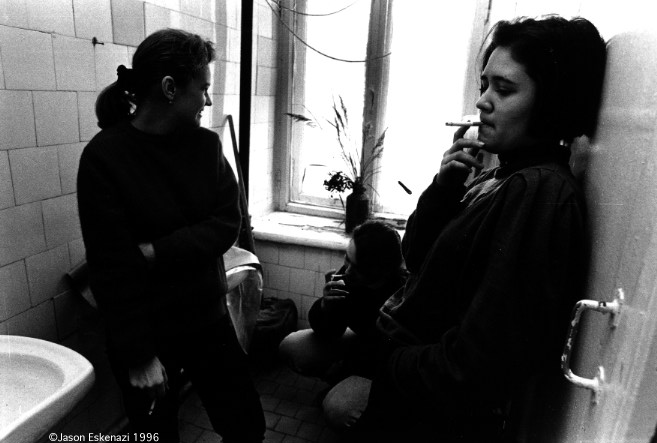
© 1996 Jason Eskenazi


